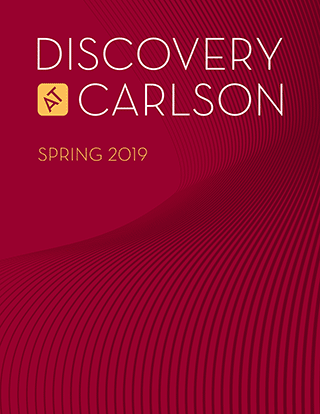
Carlson Faculty Show The Dark Side of Corporate Philanthropy Reputation Insurance
Wednesday, March 13, 2019
It’s well-established that firms can do well by doing good, as corporate philanthropy can help provide an image of good citizenship and serve as reputation insurance when things don’t go well.
While social responsibility can help the firm that gives, does it actually benefit society? New research by three Carlson School of Management scholars shows that might not be the case and pinpoints one industry where corporate giving serves as cover for larger problems: the U.S. petroleum industry.
“Businesses can do a lot of good, but if left alone, they may have reasons to take advantage of that as well,” says Assistant Professor Jiao Luo, who teamed up with Associate Professor Aseem Kaul and Ph.D. candidate Haram Seo.
How oil companies use donations to mitigate damage
With the oil industry, the researchers found a connection between corporate donations and oil spills. While the donations served as reputation insurance in terms of stock market reaction to oil spills, there was also a negative effect: more spills the following year. The researchers found that for every $100,000 firms donate, the damage the next year caused by further spills could be valued at $160,000 to $1.9 million.
“That makes it a good deal for firms, but not for society,” Luo says.
The U.S. petroleum industry offered a prime area for research, Luo says, because federal law requires companies to report oil spills. In addition, the Internal Revenue Service requires corporations to report their foundations’ charitable giving.
That offered the researchers a clear opportunity to deepen established research on corporate social responsibility (CSR). And while it’s just one industry, it gave the researchers a chance to delve into the factors that help shape the size of these effects.
One is politics. The researchers found more of a connection between donations and subsequent spills in so-called “red states,” which tend to be friendlier to business, than in so-called “blue states,” where people are more wary of corporations.
Social checks and balances are stronger in certain areas
“It does depend on how much society is able to police the firm,” Luo says. “We see a connection between CSR and activism.”
The question the research sparks is a complicated one: Whose responsibility is it to ensure society benefits from philanthropy that is theoretically intended to benefit it?
A healthy dose of curiosity from consumers is a good first step, Luo says, especially since previous research show that consumers can use their buying power to favor socially responsible firms. That could be followed by requirements for disclosure, much as the nutritional labels for food.
“When we’re thinking about business as a force for good, we also want to keep a close eye on for-profit firms and critically examine them. And by ‘we’ I mean citizens, I mean government,” Luo says. “We want to make sure the things they say they are doing that are good for society are actually good for society. I think that’s a shared responsibility for all of us.”
